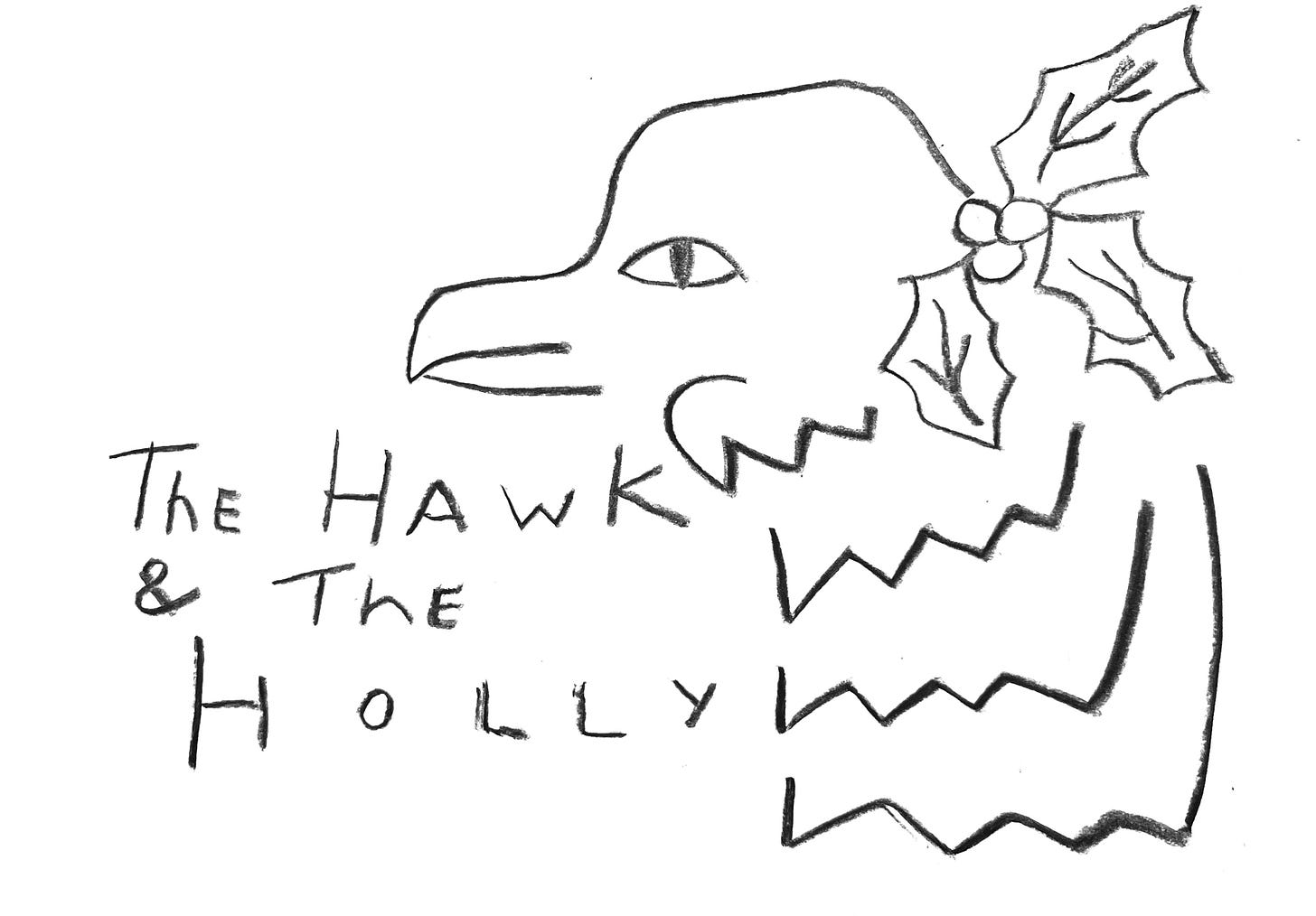It’s a drizzly late autumn morning here in Devon. The embers of last night’s fire are still glowy-glow in the ashes. I’m wrapped layers deep in cardigan and Donegal sweater, my paws cleaving to a mug of strong dark coffee. Dear reader, I’ve been ill. I travelled far to the west and got sick. Thousands of miles, over Greenland I flew, only to be clobbered by the virus that’s wrapped four times round the earth like a serpent. Underworld on occasion it was, but I returned with a gift, as is fitting with a tough invitation. In all the tossing and turning and garish dream states a story continued to swirl in me: Gawain & the Green Knight.
In this weakened and irritable state, this tale proved my Gringolet, it gave me a beast to ride through the disorientations of the illness that we are almost all personally familiar with by now. What follows is my own, very personal telling and take on the story. I’m not stating that this is ‘what it means’. I haven’t attempted to keep it in its alliterative poem form (there are great translations already), rather in the style of the oral tradition.
The last thing I heard before I got sick was that a black bear had been spotted in the area, the first for many years. Though a sickness-dream I’m sure, at night it felt like the bear totemically circled the cottage, chanting the story. An energy moving around and around in the dark. So now I pass it on, as is fitting. This should take us up to Christmas in four sections, or Fitt.
THE HAWK & THE HOLLY
A new telling of Gawain & the Green Knight
If anyone wants to be a follower of mine, let him renounce himself and take up his cross and follow me. Anyone who wants to save his life will lose it; but anyone who loses his life for my sake, and for the sake of the gospel, will save it.
Mark 8, 34-35
It is good, said God, when first he sparked up Camelot in the hearts of humans.
It is good, agreed the blacksmith, shoeing the heavy horses.
It is good, agreed the harpist in the gallery.
It is good, agreed the raven from her perch in the woods.
In deep winter, Camelot glows like the coals of a fire.
Outside its high gates are showers, snow and blueish fog. Up in the crags, Wodwos shuffle and growl, the moor crammed tight with bleak and sullen spirits. But inside that lofty entrance dwells fellowship, feast, abundance of goodwill. For over two weeks Arthur and the Round Table have been feasting. In the gallery the choir sings Noel and trumpets sound when plates of chops and steaming puddings emerge from the kitchen. In the wick-light warriors speak quiet kind words to each other. There is nowhere else anyone would wish to be. Arthur himself is giddy with the scene, almost kiddish. As the old storytellers say:
So bisied him his yonge blod and his brayn wylde.
He surveys his knights, friends, relatives, beloved wife and a thought comes to him. It glows bright in his mind. He cries out, bringing an end to all beery chat:
I will take no sip of wine, no bite of meat, till one of you tells me a tale of adventure and daring. Something that holds all the values of our beloved table.
The magic words have been said, the spell of intention uttered. There will be no going back now.
There is a strange, dark moment of silence before the inner doors of the feasting hall blow open. A knight rides fearlessly into the legendary throng. He is no beardless youth, but almost as large as a giant, and entirely green. Green skin, hair, huge scrub of beard, armour, horse. Some say there are ancient tattoos on that skin, and images of butterflies, lightning strikes and holy designs on that armour. Jewels glint. The only thing that isn’t green is the blazing red embers of his eyes. In his two great fists he holds a huge axe and a sprig of holly.




